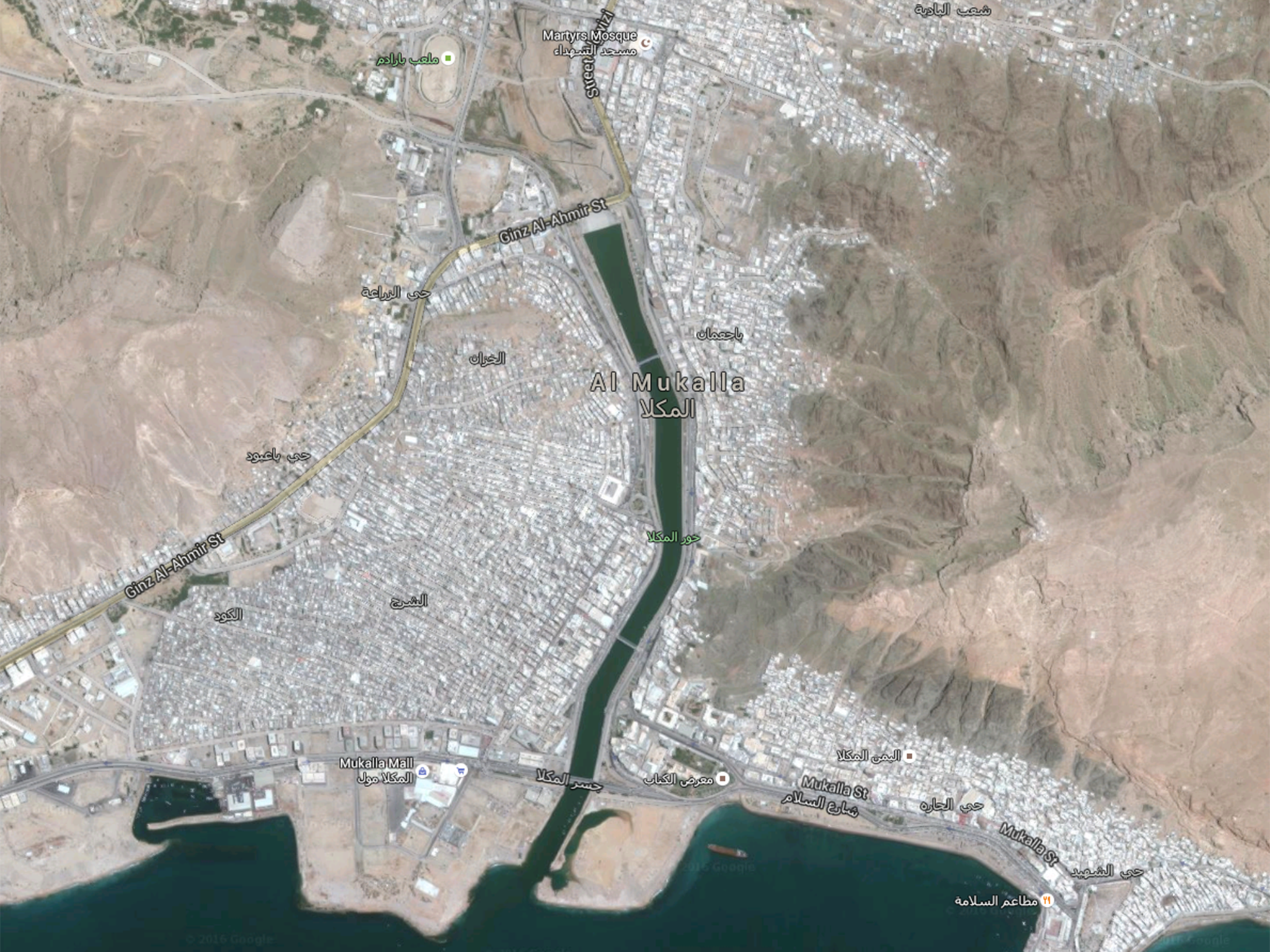Yemen bombing: Isis claims responsibility after suicide attack kills 25 in Mukalla
Attack comes just a month after the city was retaken from al-Qaeda by Yemeni government forces

Your support helps us to tell the story
From reproductive rights to climate change to Big Tech, The Independent is on the ground when the story is developing. Whether it's investigating the financials of Elon Musk's pro-Trump PAC or producing our latest documentary, 'The A Word', which shines a light on the American women fighting for reproductive rights, we know how important it is to parse out the facts from the messaging.
At such a critical moment in US history, we need reporters on the ground. Your donation allows us to keep sending journalists to speak to both sides of the story.
The Independent is trusted by Americans across the entire political spectrum. And unlike many other quality news outlets, we choose not to lock Americans out of our reporting and analysis with paywalls. We believe quality journalism should be available to everyone, paid for by those who can afford it.
Your support makes all the difference.A suicide bomber has killed at least 25 police recruits inside a compound in the southern Yemeni city of Mukalla, according to medical and security sources.
The victims were queuing up in the Fowa compound when the bomb went off. Extreme Islamist group Isis claimed responsibility for the attack, in which about 25 others were wounded.
It was the second deadly blast in four days to hit the city, a hub for rival Islamist group al-Qaeda before it was pushed out last month in an offensive by Yemeni troops backed by a Saudi-led coalition.
The police officers were returning to work for the first time since last month's recapture of Mukalla by the Government's forces.
The Yemeni affiliate of Isis claimed responsibility for the attack, saying the attacker was a "martyrdom-seeker" who had detonated his explosive belt.
The city's security director, Mubarak al-Awthaban, who was at a nearby office when the suicide bomber struck, survived, security sources said.
Before being forced out, al-Qaeda militants took advantage of more than a year of war between the Iran-allied Houthis and supporters of the Saudi-backed President Abd-Rabbu Mansour Hadi to carve out a mini-state stretching across much of the southern coast, including Mukalla.
Their militant rivals in Yemen's branch of Isis, also known as Islamic State or Daesh, have carried out a series of suicide attacks on all sides in Yemen's tangled conflict.
The growing Islamist militant threat has led the Houthis and the Yemeni government to embark on peace talks now under way in Kuwait.
Saudi Arabia, the UAE and other Arab countries intervened in the war in March 2015 in support of the government, which had been swept into exile by the Houthis.
Al-Qaeda in the Arabian Peninsula (AQAP) and Isis view the Arab coalition as a pawn of the West and see the Shia Muslim Houthis as apostates.
The US military announced last week it had deployed a small number of personnel to Yemen to aid in the fight against AQAP, its first troop presence in the country since the Houthis took much of the country.
The Associated Press and Reuters contributed to this report
Join our commenting forum
Join thought-provoking conversations, follow other Independent readers and see their replies
Comments